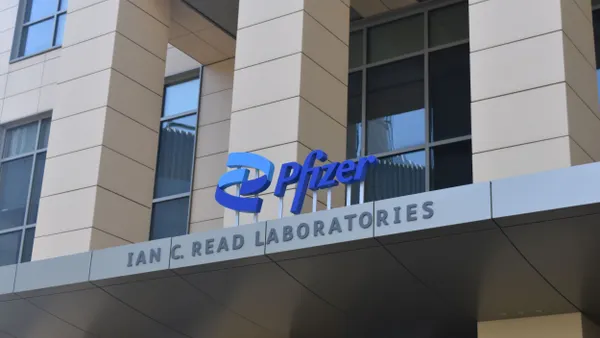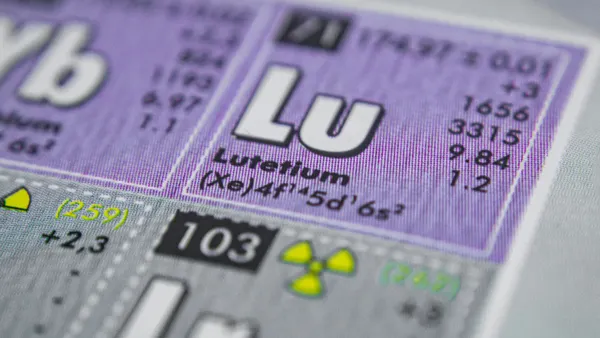Dive Brief:
- A combination of two Johnson & Johnson drugs helped people with a common type of advanced lung cancer live longer than Tagrisso, a widely used medicine from AstraZeneca that’s considered standard of care in certain cases.
- J&J didn’t disclose specific survival data from its Phase 3 study, dubbed Mariposa. But the company said Tuesday it expects its drugs Rybrevant and Lazcluze to have improved median overall survival over Tagrisso by more than one year, a notable finding that could spur wider adoption of the J&J regimen.
- Rybrevant and Lazcluze were approved in the U.S. late last summer based on earlier data from Mariposa that showed the combination kept lung tumors in check for longer than Tagrisso. The trial involved nearly 1,100 people with previously untreated non-small cell lung cancer that had metastasized or advanced locally.
Dive Insight:
Tuesday’s disclosure from J&J is a summary; full results won’t be available until an “upcoming medical meeting.” The company also plans to share them with health regulators.
Still, the finding J&J has claimed is notable. Tagrisso has become a top-selling cancer drug due to its extensive use treating non-small cell lung tumors harboring mutations in a gene known as EGFR. In a study called FLAURA, AstraZeneca showed Tagrisso treatment led to median overall survival of nearly 39 months.
J&J described the survival improvement it observed in Mariposa as “clinically meaningful and statistically significant,” meeting the study’s final pre-specified secondary goal.
While Rybrevant and Lazcluze are already approved for use in non-small cell lung cancer, the overall survival benefit J&J is reporting may convince more physicians to use the regimen over Tagrisso. Prior data showed the combination reduced the risk of cancer progression or death by 30% versus Tagrisso alone, but extending survival is considered more definitive evidence for a new cancer drug.
Still, physicians will have to weigh the treatments’ relative safety profiles. In Mariposa, 10% of people given Rybrevant and Lazcluze stopped therapy due to side effects, compared to 3% of those on Tagrisso. The combination was also associated with a type of blood clot that forms in veins, prompting the FDA to require preventive anticoagulation during the first months using J&J’s regimen.
AstraZeneca has also shown in further testing that adding chemotherapy to Tagrisso can improve on the benefit offered by Tagrisso alone. That addition comes with additional safety concerns of its own, however, and hasn’t yet been proven to extend survival.
Rybrevant is a bispecific antibody that binds to two different types of proteins, called EGFR and MET. Lazcluze is an oral drug aimed at EGFR, and works by inhibiting an enzyme that can transform normal cells into cancerous ones.
They’re approved in the U.S. and Europe for use together as first-line treatment of locally advanced or metastatic non-small cell lung cancer with certain mutations in which pieces of DNA have been deleted or substituted.














